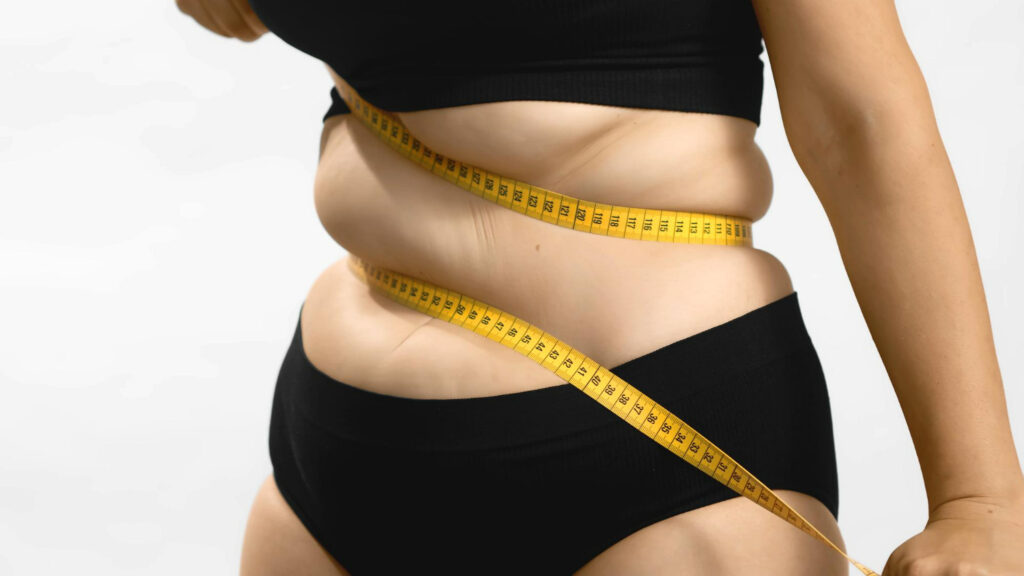
A person’s weight and height are taken into consideration when calculating their body mass index (BMI), which measures their body size. The Centers for Disease Control and Prevention (CDC) classify adult obesity as having a BMI of 30.0 or more. Obesity has an effect on the entire body and results in health problems, including infertility. Unhealthy weight gain has emerged as one of the main effects of a sedentary lifestyle, and the number of people who are obese is significantly rising.
Experts in fertility say that if you want to become pregnant, you should keep your weight at a normal or healthy level. Obesity’s harmful effects include frequent miscarriages, irregular periods, hormone imbalances, etc. Sometimes an overabundance of fatty tissues in the body also causes polycystic ovarian syndrome (PCOS), which can affect ovulation. Actually, men and women both suffer from obesity.
How does Obesity Impact Fertility in Males?
Infertility in males is brought on by issues with sperm production or sperm transit through the male reproductive system. Let us see how can obesity impact fertility in males
- Azoospermia, which is the absence of sperm in the semen,
- Oligospermia, which is a low sperm count.
- unusual form that interferes with the sperm’s capacity to fertilise the egg.
- Poor motility refers to an issue with the sperm’s swimming capacity.
Male infertility can result from a variety of issues, including genetic disorders, incorrect hormone function, and lifestyle elements including your general health and weight. The creation and development of mature sperm depend on the hormone testosterone. Directly by converting it into a form of oestrogen or indirectly by producing leptin, fat cells can lower testosterone levels. Leptin production rises when body fat levels rise, which lowers testosterone synthesis. Accordingly, decreased testosterone levels in obese males with high leptin levels affect sperm production, sexual drive, and erectile function. Additionally, sperm damage brought on by inflammation related to obesity may alter the genes that are passed on from one parent to the next.
How does obesity impact female fertility?
A woman’s fertility may be impacted by being overweight since it can lead to hormonal abnormalities, ovulation issues, and menstrual problems. The menstrual cycle is regulated by a precise hormonal balance. Women who are overweight or obese have greater levels of leptin, a hormone made in fatty tissue. This may affect the balance of hormones and lower fertility. Through a variety of hormonal pathways, body fat quantity and distribution have an impact on the menstrual cycle. The likelihood of having fertility issues increases with increased weight and belly fat.
Let us see how can obesity impact fertility in females:
- Period irregularities are brought on by physiological changes that endanger fertility.
- Compared to females with normal body weight, the rate of successful contraception decreases.
- Additionally, obesity causes the abdomen region to experience excessive pressure that stops the ovaries from releasing eggs for fertilisation, a condition known as anovulation.
- When a female is affected by obesity, the quality of her eggs also declines.
Surgery, medication, and reproductive assistance such as ART are all possible forms of treatment for female infertility. In order to address female infertility, multiple therapy modalities may occasionally be required. Weight loss with a hypocaloric diet is the most inexpensive therapy option for obese infertile women.
How to Maintain A Regular Healthy Body Weight?
Following a healthy lifestyle to improve fertility is advised by specialists to prevent infertility problems. Consider taking the following measures to achieve a healthier weight.
- Maintain a nutritious, well-balanced diet that includes foods from all five food groups: fruits; wholegrain bread and cereals; milk, yoghurt, cheese, and dairy substitutes; lean meat, poultry, fish, eggs, seeds, and nuts.
- At lunch and dinner, fill half of your plate with veggies.
- Limit unhealthy snacking and eat meals at regular intervals.
- To assist in reducing your portion sizes, use a smaller plate.
- Limit your intake of discretionary items, such as chips, biscuits, fatty meats, pastries, cakes, fast food, and confectionery, and only consume them in moderation.
- Replace alcohol and sugary beverages with water.
- When using a computer or mobile device, move around frequently and switch out screen time for other activities to reduce the amount of time you spend sitting.
- Daily exercise is advisable. Include regular physical activity in your schedule by walking to the store, using the stairs, or going for a walk with a friend.
- Decide on a reasonable weight target. You may feel more driven and engaged as a result. Aiming to lose half to one kilogramme of weight per week until you reach your desired weight is a good objective.
- Together with your partner, start a healthy food and exercise regimen to improve your chances of becoming pregnant and giving birth to a healthy child.
Shedding your excess body weight would be the first advice given in the infertility clinic in Kerala. Even if you don’t lose weight, adopting these lifestyle modifications will improve your general health. Make these changes before you start trying to conceive, and keep them up during your pregnancy and after.